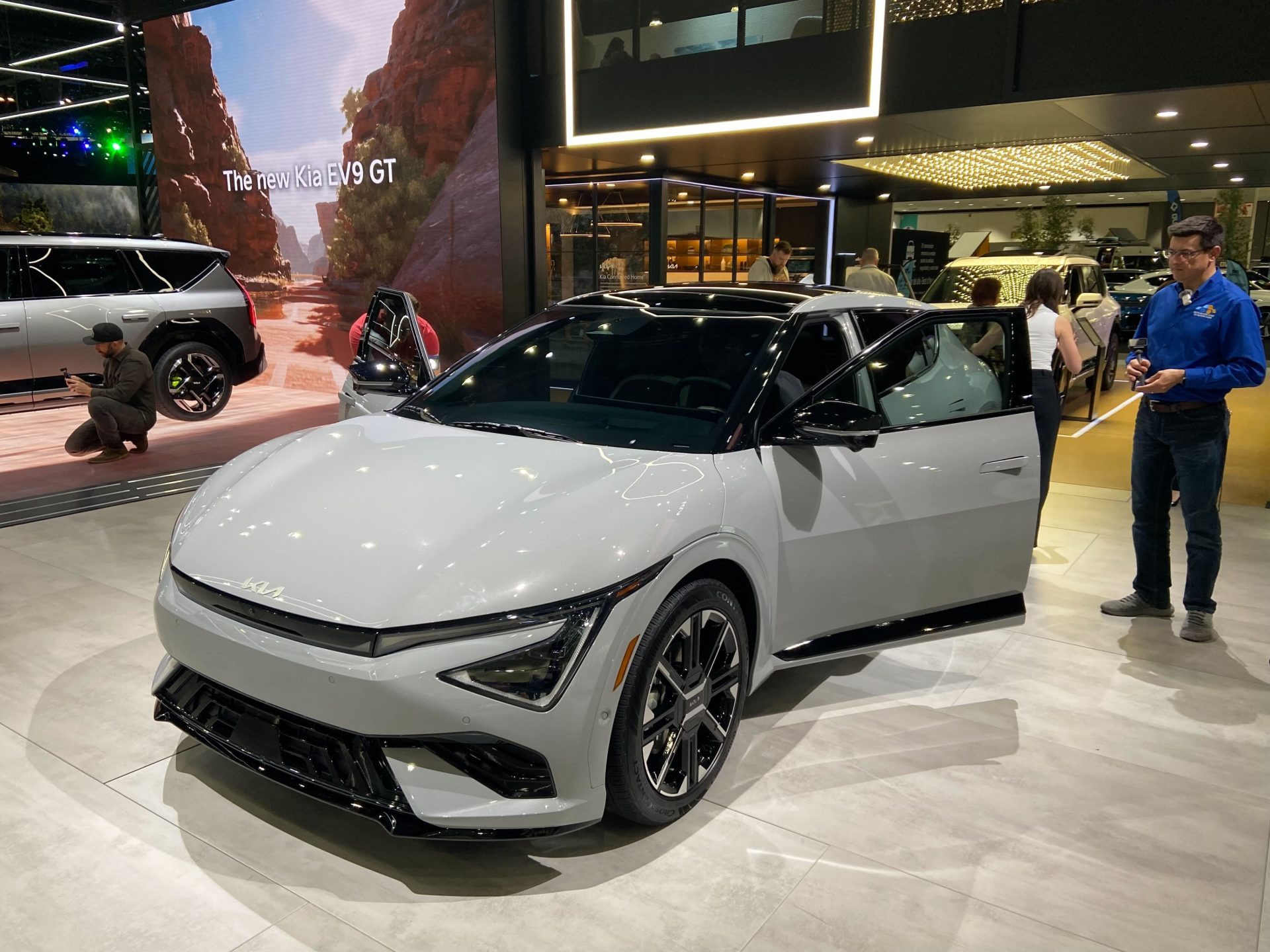By Zachary Hansen
The Atlanta Journal-Constitution
(TNS)
LOS ANGELES — A top executive at Hyundai Motor Group said the electric vehicle market in the U.S. remains attractive even if the forthcoming Trump administration rolls back federal programs designed to juice EV sales.
“We are not planning our business based on tax credits,” José Muñoz, Hyundai North America’s chief executive, said Thursday at the Los Angeles Auto Show after unveiling a new electric SUV slated to be built at the company’s Georgia factory.
Several news outlets reported last week that Donald Trump’s presidential transition team is evaluating ways to kill the $7,500 consumer EV tax credit program President Joe Biden signed into law in 2022. The credits, part of Biden’s signature health and climate bill known as the Inflation Reduction Act, were designed to lower the initial cost of a plug-in vehicle compared to conventional vehicles to encourage consumer adoption.
They’re also a huge carrot to incentivize automakers to build their EVs in North America—and create jobs—to qualify for the credit.
Hyundai’s IONIQ 9 three-row SUV—the second EV slated for production at its $7.6 billion Metaplant near Savannah—is expected to qualify for the full tax credit, although the automaker hasn’t specified its sticker price yet. MotorTrend Magazine reported the IONIQ 9 will likely range between $61,500 and $75,500 depending on trim. The SUV must be priced at less than $80,000 to qualify for the tax credit.
Hyundai announced its Georgia factory plans before Biden signed the new credits into law, but he campaigned on electrifying America’s automotive industry and many companies began plans to re-shore EV manufacturing and supply chains in anticipation of new incentives.
Muñoz, who will be promoted to president and CEO of the global Hyundai Motor Group in January, said removing one incentive won’t permanently pump the brakes on the electrification of auto travel.
“We believe electric technology and electrified vehicles are the technology of the future,” he said. “Maybe the speed (of that transition) is going to be a little bit less than what we thought, but it’s still happening.”
Leaders at Kia, Hyundai’s corporate sibling, were more blunt in criticizing the tax credit’s potential removal. Steve Center, chief operating officer and executive vice president at Kia America, told InsideEVs at the LA Auto Show that, “It would just be dumb,” to ax the incentive.
“You’re pulling the rug out from under the whole industry,” Center said.
Kia is Georgia’s other operational auto manufacturer, and it announced Thursday it would build a new electric crossover at its West Point plant.
_______
©2024 The Atlanta Journal-Constitution. Visit at ajc.com. Distributed by Tribune Content Agency LLC.
Thanks for reading CPA Practice Advisor!
Subscribe Already registered? Log In
Need more information? Read the FAQs




